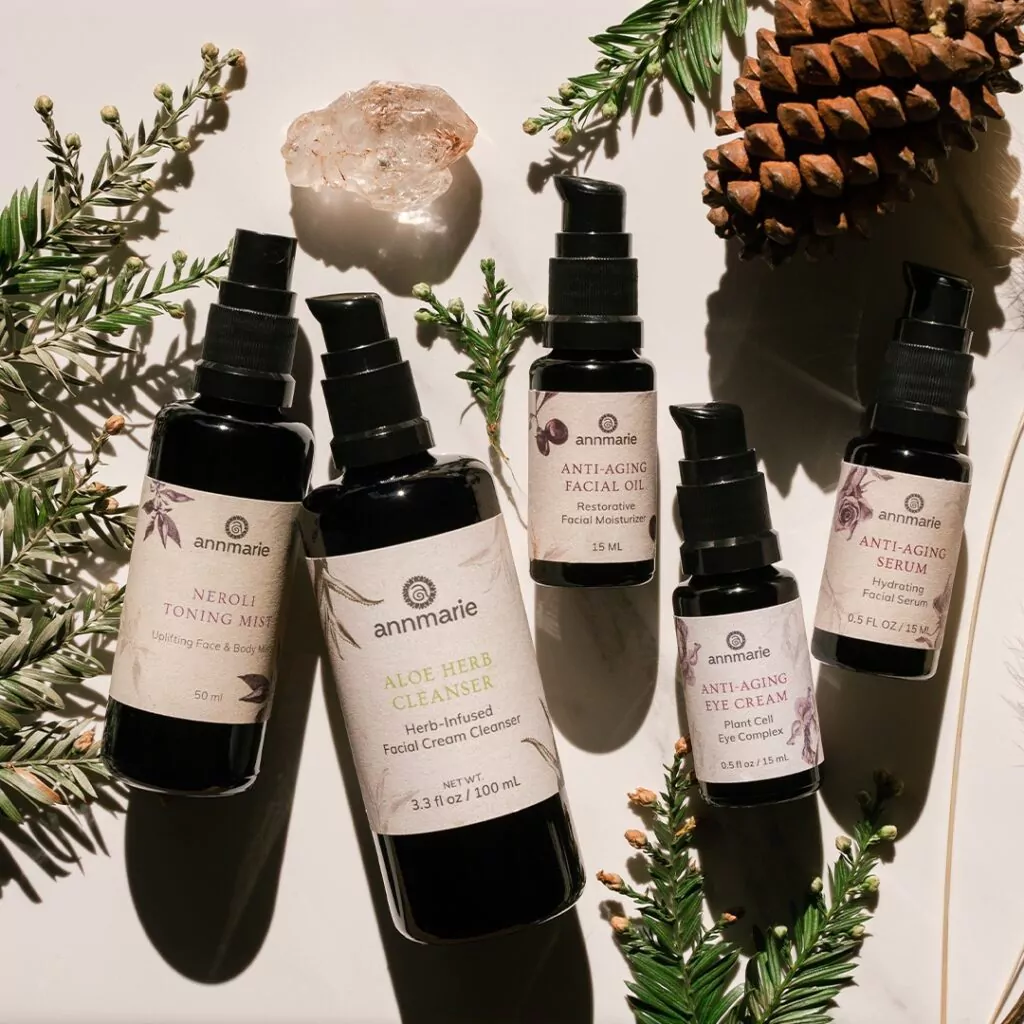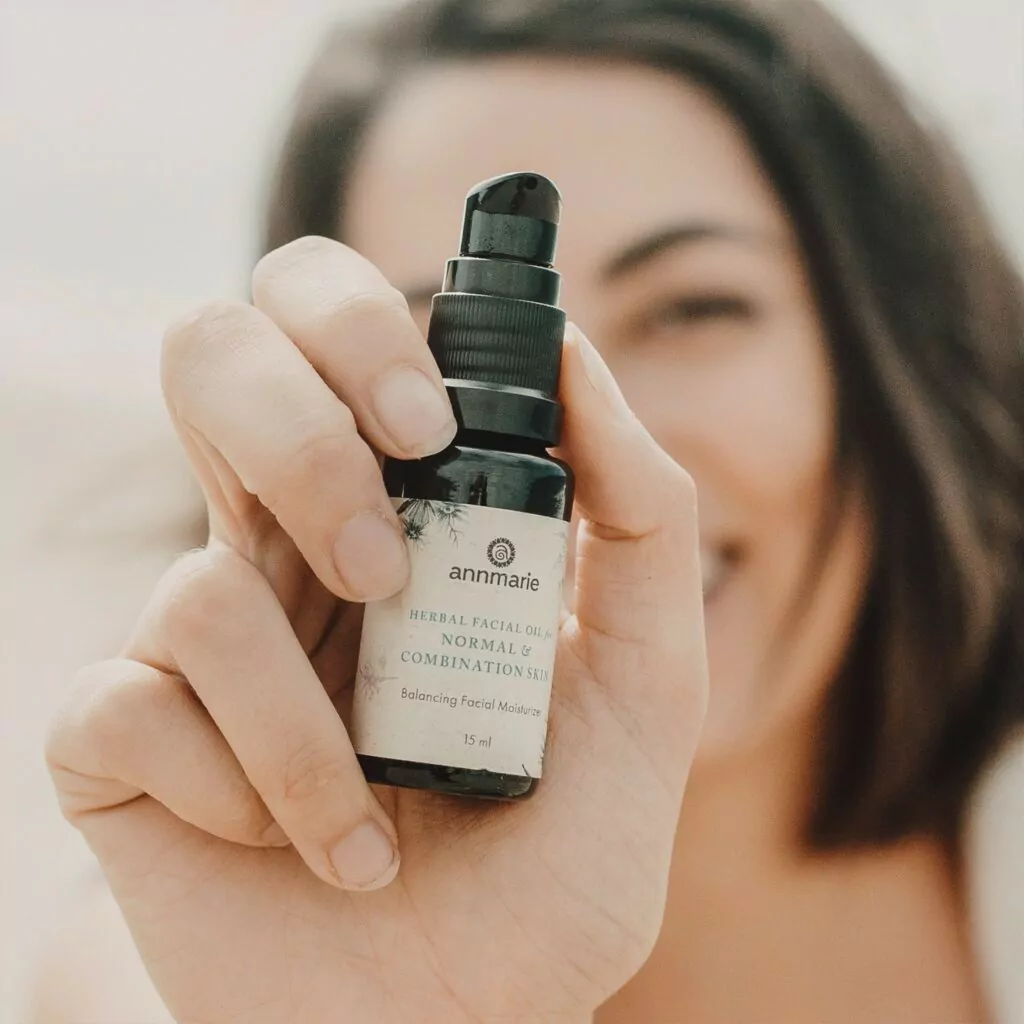Table of Contents[Hide][Show]
- Conclusion
Frequently Asked Questions+−
- What Are The Best Natural Oils for Reducing the Appearance of Wrinkles?
- Should You Apply Oil Before Or After Moisturizer?
- Can I Use Essential Oils Directly on My Skin?
- How Often Should I Apply Natural Oils to My Skin?
- Can I Mix Different Natural Oils Together?
- How Long Does It Take to See Results from Using Natural Oils for the Look of Wrinkles?
- Are There Any Side Effects of Using Natural Oils on The Skin?
- Can I Use Natural Oils if I Have Oily Skin?
Natural oils have been cherished for centuries as the perfect anti-aging solution, and for good reason. Unlike creams that often contain fillers and additives, oils are pure and undiluted, allowing them to deliver a higher concentration of activated ingredients directly to your skin.
But why are oils our preferred method of moisturizing for anti-aging? It all comes down to their unique composition. Oils are lipophilic, meaning they have a natural affinity for the skin’s lipid barrier. This allows them to penetrate deeply, delivering essential nutrients and moisturization where it’s needed most. In contrast, creams typically include other ingredients to create their texture, which can dilute the potency of the active components.
The real game-changer, however, is when these oils are infused with carefully selected herbs, whether steeped or combined with herbal extracts or pure essential oils. While oils alone are incredibly nutritious, the addition of specific herbs takes their anti-aging properties to new heights. These herb-powered oils play a targeted role in addressing the visible signs of aging, such as the appearance of wrinkles and fine lines. The synergy between the oils and the herbs creates a powerful elixir that nourishes, rejuvenates, and revitalizes mature skin.
In this article, we’ll explore the best natural oils for aging skin, share tips on how to incorporate them into your skin care routine, and even provide a simple DIY recipe for a luxurious anti-aging oil blend. Get ready to harness the power of nature and unlock the secret to a more youthful, radiant complexion.
*Disclaimer:
The information provided in this article is for general informational and educational purposes only. The content focuses on the cosmetic uses and potential skin care benefits of natural oils and is not intended as medical advice. Always consult experts before using essential oils or carrier oils, especially if you have any pre-existing medical conditions or are taking medications. Patch testing is recommended prior to using any new products to check for skin sensitivity or allergic reactions. Individual results may vary.
Best Natural Oils for Aging Skin?

Carrier Oils
Derived from the fatty portions of plants, such as the seeds, kernels, or nuts. These oils are used to dilute essential oils and carry them to the skin. Carrier oils are also beneficial on their own, as they are rich in nutrients, fatty acids, and antioxidants that nourish and protect the skin, promoting a youthful, radiant complexion.
- Jojoba Oil: Closely mimics the skin’s natural sebum, making it effective at balancing the skin’s natural oils. This oil is rich in vitamin E and B-complex vitamins, which help to renew the skin. Jojoba oil deeply moisturizes, making it a wonderful option for dry or mature skin types..
- Chia Seed Oil: An omega-3 fatty acid with high alpha-linolenic acid (ALA) that helps to plump and moisturize the skin. This oil also contains potent antioxidants that protect the skin against environmental stressors. Its lightweight texture makes it ideal for all skin types, including those with oily or combination skin.
- Carrot Seed Oil: Rich in beta-carotene, a precursor to vitamin A, which helps to rejuvenate the skin. This oil also contains vitamin E and linoleic acid, which help to moisturize and protect the skin from environmental stressors. Its light, non-greasy texture makes it suitable for all skin types, especially mature or aging skin.
- Sunflower Seed Oil: With high properties in linoleic acid, sunflower seed oil helps to strengthen the skin’s barrier and retain moisture. It also contains vitamin E, a powerful antioxidant that protects the skin from environmental stressors. This lightweight oil absorbs quickly, leaving the skin feeling soft and smooth without a greasy residue. Unsure about this oil? Read our take on seed oils.
- Avocado Oil: Has an extremely high oleic acid content, making it deeply moisturizing for dry, mature skin. It also contains vitamins A, D, and E, which nourish and protect the skin. This oil is also easily absorbed.
- Argan Oil: Rich in antioxidants and soothing compounds that may help to support youthful-looking skin. Its high linoleic acid content helps to enhance the skin’s barrier and reduce water loss. This non-greasy oil is also helpful for balancing the skin’s natural oils.
- Grapeseed Oil: Has cleansing properties that help to tone and tighten the look of sagging skin. It contains powerful antioxidants like proanthocyanidins, which enhance the skin’s natural defenses and protect against environmental stressors. This lightweight oil absorbs quickly without leaving an oily residue, making it ideal for those with oily or combination skin.
- Sesame Seed Oil: Has been used for centuries in skin care for its nourishing and calming properties. It contains sesamol, a unique antioxidant that helps to protect the skin from premature aging. This oil also has a high linoleic acid content, which helps to moisturize and soothe dry, irritated skin.
- Kukui Nut Oil: Is a luxurious, lightweight oil that is easily absorbed by the skin. It is rich in essential fatty acids, including linoleic, linolenic, and oleic acids, which help to nourish and moisturize the skin. This oil also contains vitamins A, C, and E, which provide antioxidant protection and promote a youthful complexion.
- Sacha Inchi Oil: Is a relatively new addition to the world of skin care, but it has quickly gained popularity for its impressive nutrient profile. This oil is rich in omega-3, omega-6, and omega-9 fatty acids, which help to nourish and moisturize the skin. It also contains high levels of vitamin A and vitamin E, which provide antioxidant protection and promote skin rejuvenation.
Essential Oils
Essential oils are highly concentrated plant extracts obtained through distillation or cold pressing. These potent oils are known for their ability to address various skin concerns, including aging. When used properly and diluted with a carrier oil, essential oils can help to rejuvenate, soothe, smooth, and protect mature skin, promoting a more youthful appearance.
- Jasmine Oil: An essential oil known for its beautiful aroma and skin-nourishing properties. It helps to moisturize and soften dry, mature skin, reducing the appearance of fine lines and wrinkles. Jasmine oil also assists in balancing the skin’s natural oils, making it suitable for both dry and oily complexions.
- Frankincense Oil: Known for its benefit to firm and lift the look of aging skin. It supports skin renewal, helping to even out the appearance of skin tone and promote a more radiant complexion. This holy grail oil is particularly beneficial for mature, dry skin.
- Sandalwood Oil: Has a classic, sensual aroma. Helps to even out skin tone and smooth the look of rough texture, promoting a more youthful, even-textured complexion. It also soothes temporary redness
- Ylang Ylang Oil: A sweet, floral essential oil that offers both skin care benefits and gorgeous aromatherapy. It helps to balance the skin’s natural oils, making it useful for both dry and oily complexions. Ylang ylang oil also promotes a sense of peacefulness and well-being.
- Clary Sage Oil: A versatile essential oil that offers numerous benefits for aging skin. It helps to balance the complexion, and reduce temporary redness in the skin. Clary sage oil also has a firming and toning effect, making it useful for treating the look of sagging or mature skin.
- Rose Oil: Is known for its ability to tone and tighten your complexion, soothe temporary redness, as well as correct uneven skin tone and dullness, giving the skin a radiant glow. This ultra-luxurious oil is fit for a queen’s beauty regimen.
- Neroli Oil: Is beneficial for mature skin. It helps to diminish the appearance of fine lines and uneven skin tone, promoting a more even, youthful-looking complexion. Its sweet, floral, and citrusy scent is uplifting, providing a spa-like experience at home.
- Lemon Oil: A refreshing, vibrant essential oil that helps to brighten and even out the appearance of dark spots and skin tone. It also has cleansing properties, helping to clarify the skin. However, it can cause photosensitivity, so it should be used with caution and always diluted properly.
How To Use Natural Oils for Aging Skin

Including natural oils into your skin care routine is a simple and effective way to nourish and revitalize aging skin. Here are some tips for using natural oils to achieve a more youthful, radiant complexion.
- Start with a clean face: Before applying any oils, make sure to cleanse your face thoroughly to remove any dirt, makeup, or impurities. This will help the oils penetrate deeper into the skin and provide maximum benefits.
- Warm the oil in your hands: Pour a small amount of oil into the palm of your hand and rub your hands together to warm the oil. This will help the oil spread more easily and absorb into the skin more effectively.
- Apply to damp skin: After cleansing, pat your face with a clean towel until it is slightly damp. Apply your hydrators—toner and serum, then follow with your oil. Applying oils to damp skin will help lock in moisture and drive the previous products deeper into the skin.
- Massage gently: Using your fingertips, gently massage the oil into your skin using circular motions. Be sure to avoid pulling or tugging at the skin, as this can cause irritation or damage. You could also use a gua sha tool to an oiled face.
- Allow the oil to absorb: After massaging the oil into your skin, allow it to absorb for a few minutes before applying any additional products. This will give the oil time to set into the skin and provide maximum benefits.
If using essential oils, it is important to remember that they are highly concentrated and should always be diluted with a carrier oil before applying to the skin. A good rule of thumb is to use 2-3 drops of essential oil per teaspoon of carrier oil. It is also important to do a patch test before using any new oil to ensure that you do not have any adverse reactions.
Choosing the Right Oil for Your Skin Type
When choosing a natural oil for your skin, it is important to consider your skin type and any specific concerns you may have. Here are some general guidelines for choosing the right oil for your skin:
- If you have dry or mature skin, opt for rich, nourishing oils like jojoba oil, avocado oil, or argan oil
- For oily skin or clogged pores, choose lighter weight oils like hazelnut oil or grapeseed oil.
- As for sensitive skin, stick with gentle, soothing oils like sacha inchi oil and pair it with calming essential oils like chamomile oil.
DIY Anti-Aging Oil Blend Recipe
Creating your own anti-aging oil blend is a simple and cost-effective way to customize your skin care routine. Here is a basic recipe to get you started:
Ingredients:
- 1 oz jojoba oil
- 1 oz rosehip seed oil
- 5 drops frankincense essential oil
- 5 drops lavender essential oil
Instructions:
- Step 1: In a small glass bottle, combine the jojoba oil and rosehip seed oil.
- Step 2: Add the frankincense and lavender essential oils and shake well to combine.
- Step 3: Apply a small amount of the oil blend to your face and neck after cleansing, using gentle circular motions.
- Store the remaining oil blend in a cool, dark place and use it within 6 months.
If you’re interested in herbal oils but would rather purchase one than make your own, consider trying our Anti-Aging Facial Oil, which features more than 13 different nourishing oils and herbal CO2 extracts. This luxurious facial oil, which features a potent, herb-infused base that is supercharged with additional botanical extracts, has been specifically formulated to address the visible signs of aging, leaving your skin looking and feeling more youthful and radiant. It’s one of our bestsellers (and has been for many years) for a reason!
Conclusion
Natural oils are a powerful tool in reducing the sights of aging. By nourishing and revitalizing the skin with essential fatty acids, antioxidants, and other beneficial compounds, these oils can help to reduce the appearance of fine lines, wrinkles, and other signs of aging.
When using natural oils, it is important to choose high-quality, pure oil blends that are appropriate for your skin type. By experimenting with different oils and blends, you can find the perfect combination to help you achieve a more youthful, radiant complexion.
While natural oils can be incredibly effective at reducing the visible signs of aging, it is important to remember that they are not a quick fix. Consistency is key when it comes to achieving long-term results, so be sure to use your chosen oils regularly as part of a well-rounded skin care routine.
As with any new skin care product, it is always a good idea to do a patch test before incorporating natural oils into your routine to ensure that you do not have any adverse reactions. If you experience any irritation or discomfort, discontinue use immediately and consult with a skin care professional.
Frequently Asked Questions
What Are The Best Natural Oils for Reducing the Appearance of Wrinkles?
Rosehip seed oil, jojoba oil, argan oil, and frankincense essential oil are some of the best natural oils for reducing the appearance of wrinkles. These oils are rich in antioxidants, essential fatty acids, and other beneficial compounds that nourish and revitalize the skin.
Should You Apply Oil Before Or After Moisturizer?
Your oil will act as your moisturizer. Apply facial oils after your hydrating products (like a toning mist or serum). Oils create a barrier on the skin that can prevent other products from penetrating effectively. By applying oil after hydrating products, it allows theskin to first receive the hydration and activated ingredients from the serum first. Then, the oil seals in moisture and provides additional nourishment.
Can I Use Essential Oils Directly on My Skin?
It’s generally not recommended to use essential oils directly on the skin, as they are highly concentrated and can be irritating. To use essential oils safely, dilute them with a carrier oil before applying to the skin, using 2-3 drops of essential oil per teaspoon of carrier oil.
How Often Should I Apply Natural Oils to My Skin?
The frequency of applying natural oils depends on your skin type and concerns. Generally, it’s safe to apply facial oils once or twice per day, morning and/or at night. Listen to your skin and adjust your routine accordingly.
Can I Mix Different Natural Oils Together?
Yes, you can mix different natural oils to create a custom blend that addresses your specific skin care concerns. Choose oils with similar properties and benefits to target your main skin concerns, and ensure they are compatible to avoid adverse reactions.
How Long Does It Take to See Results from Using Natural Oils for the Look of Wrinkles?
The time to see results from using natural oils for the look of wrinkles varies depending on individual skin type, concerns, and overall skin care routine. It can take several weeks to several months of consistent use to see noticeable improvements. Be patient and consistent for best results.
Are There Any Side Effects of Using Natural Oils on The Skin?
While natural oils are generally safe, there is a potential for side effects, especially for those with sensitive skin. Common side effects may include redness, itching, or breakouts. If you experience any of these symptoms, discontinue use and consult with a skin care professional.
Can I Use Natural Oils if I Have Oily Skin?
Yes, you can use natural oils even if you have oily skin. The right oils can help balance the skin’s natural oils and keep your skin healthy. Choose lightweight options like hazelnut oil, grapeseed oil, and rosehip seed oil.








Leave a Reply